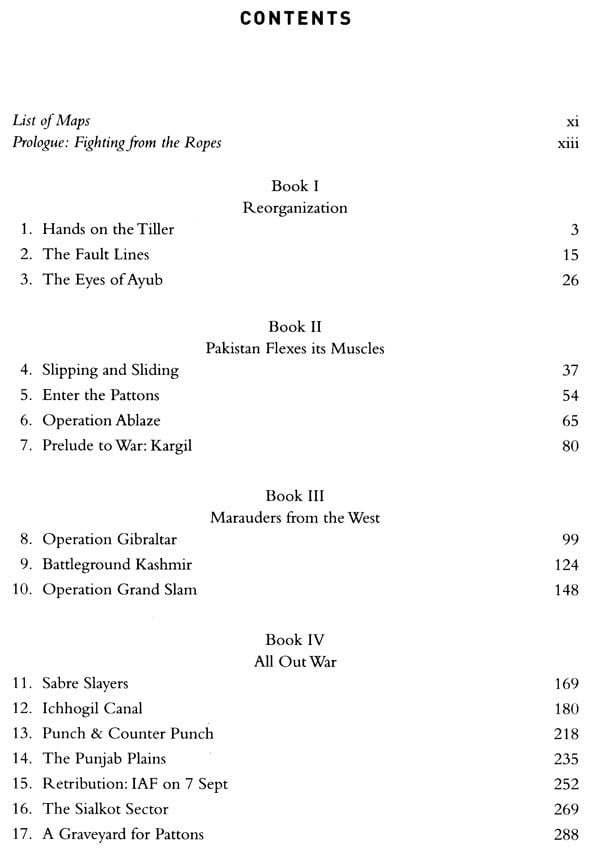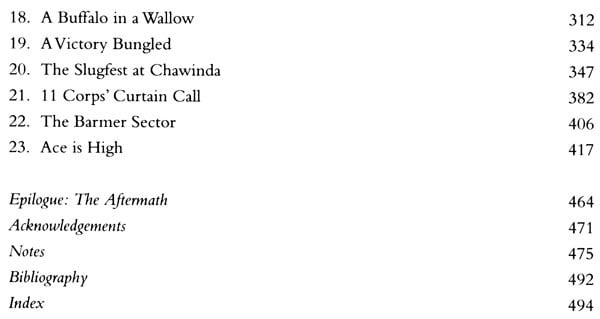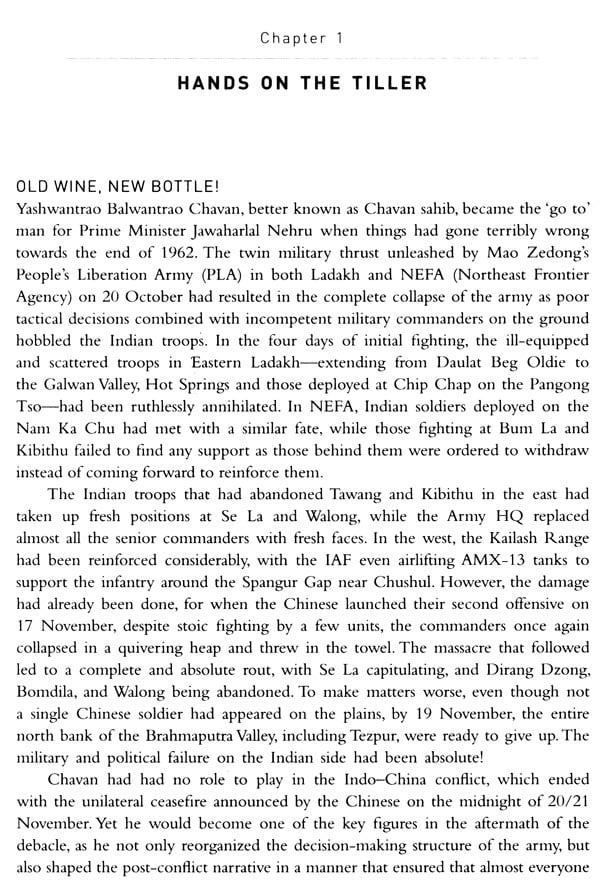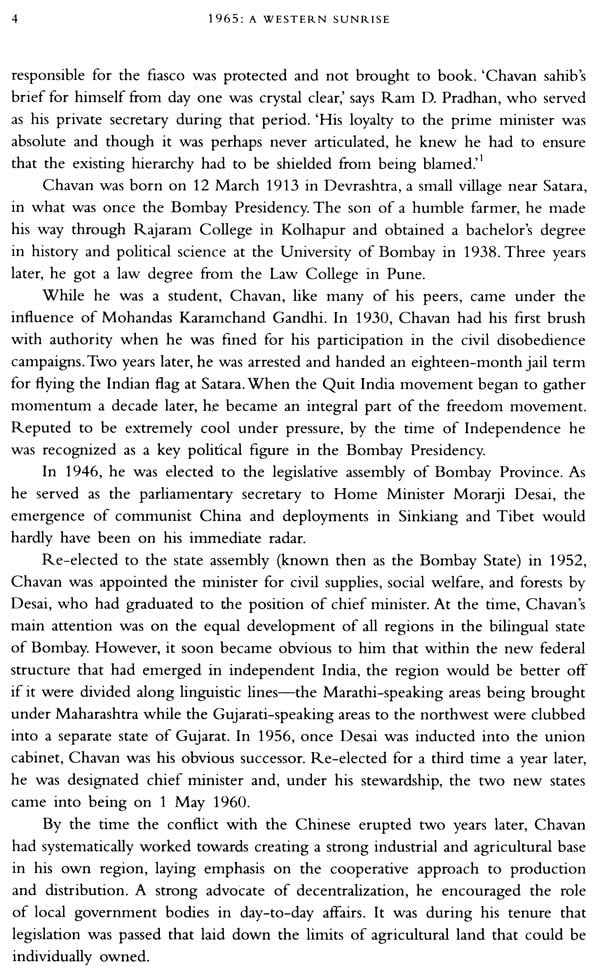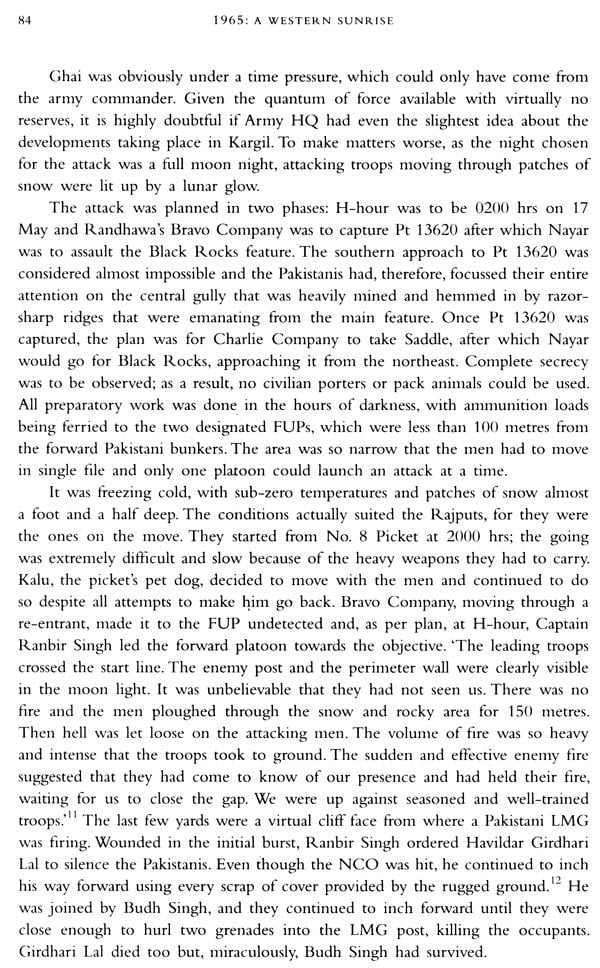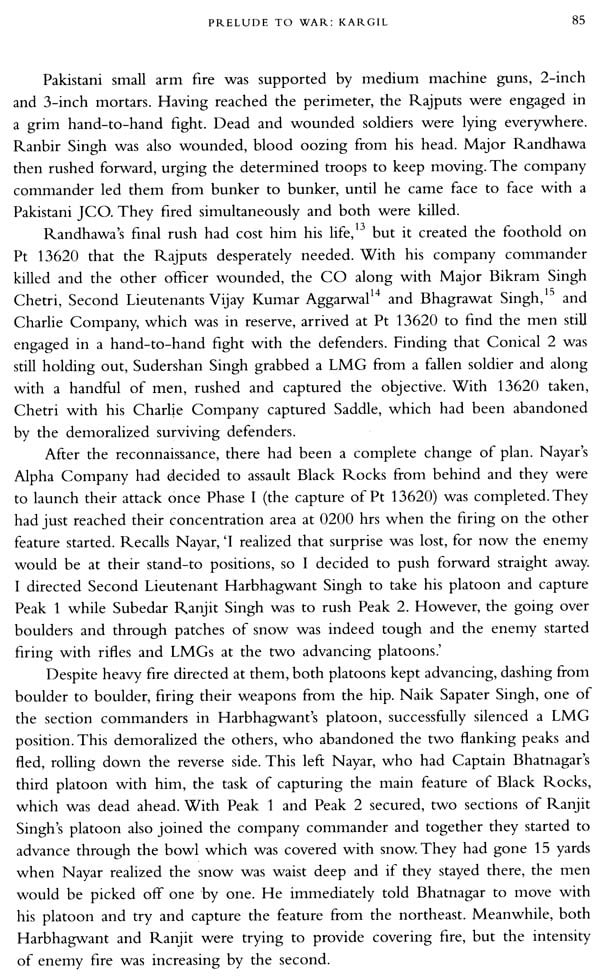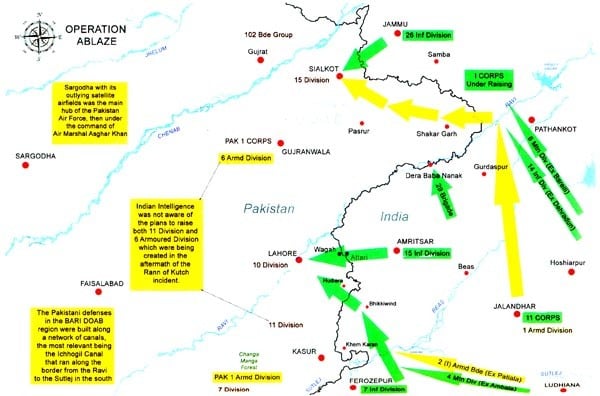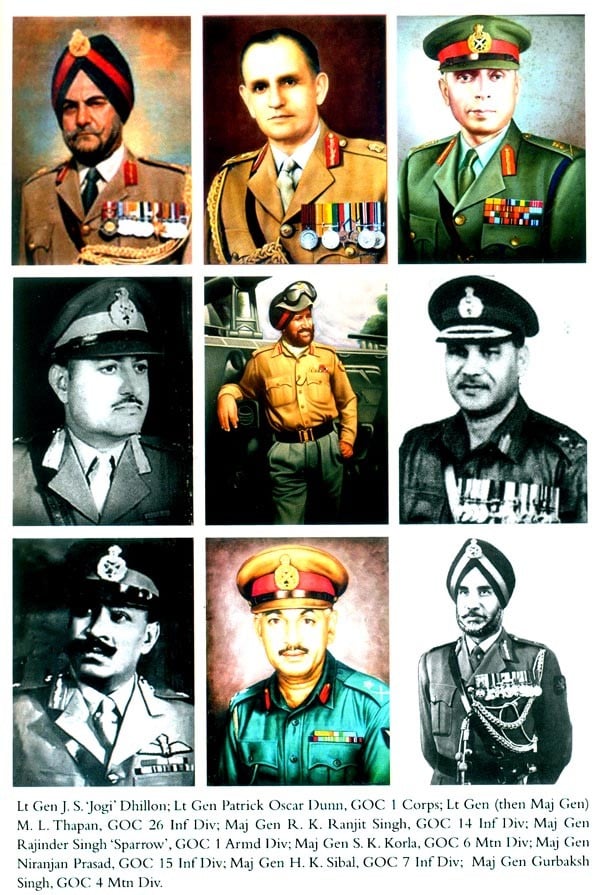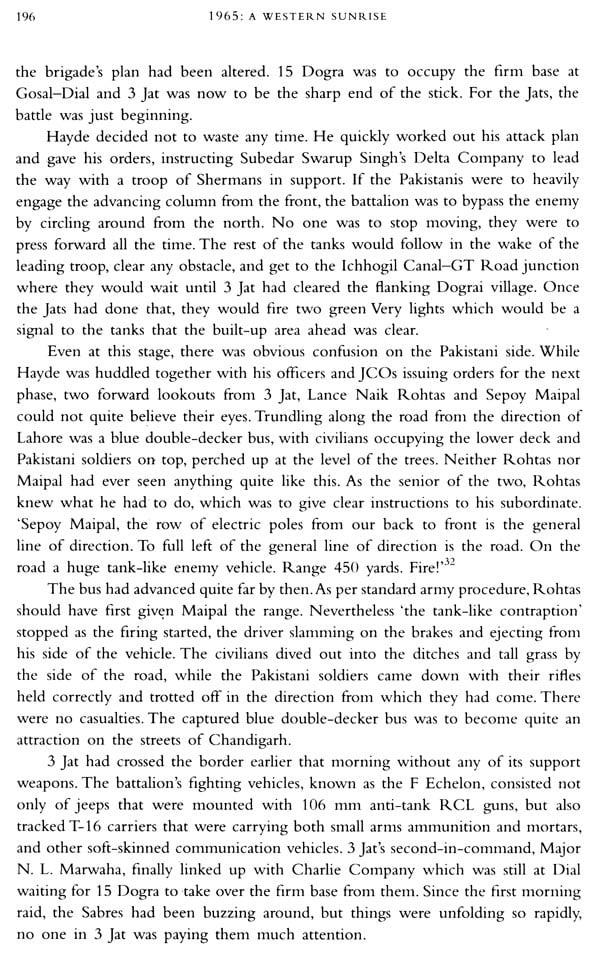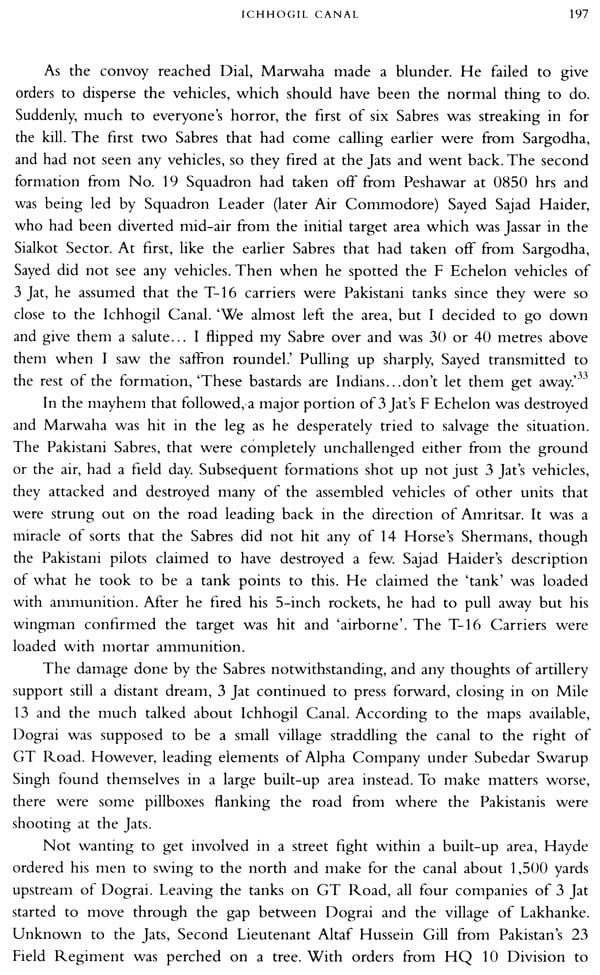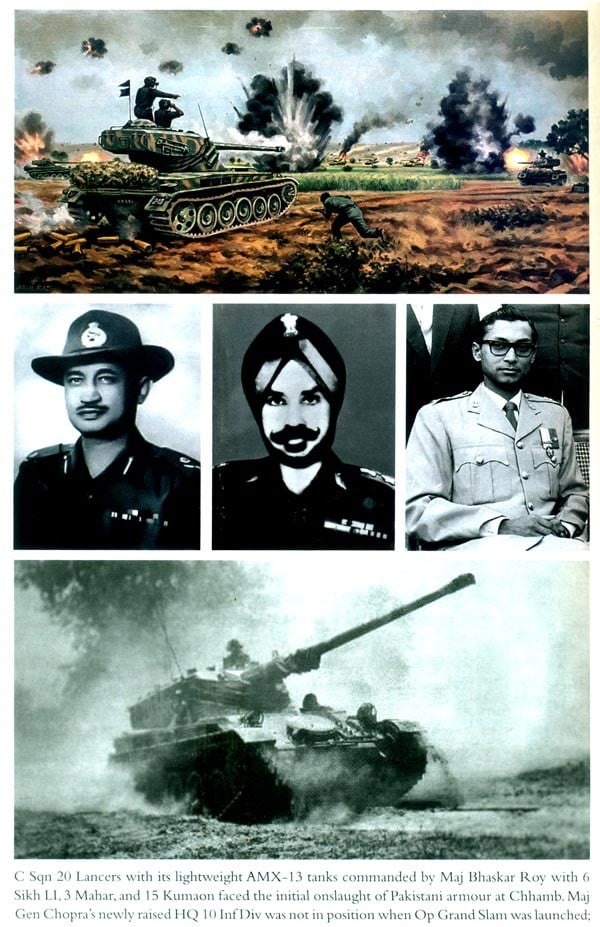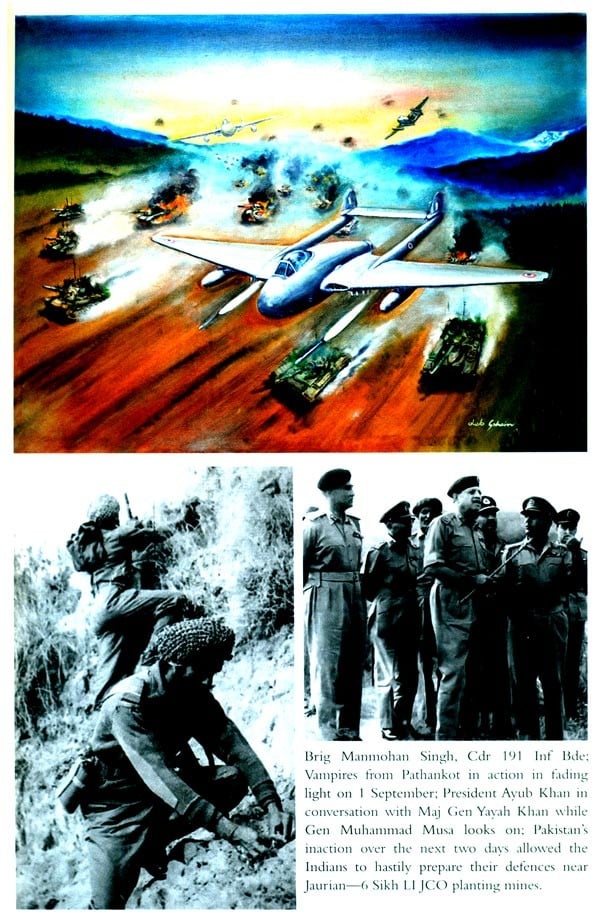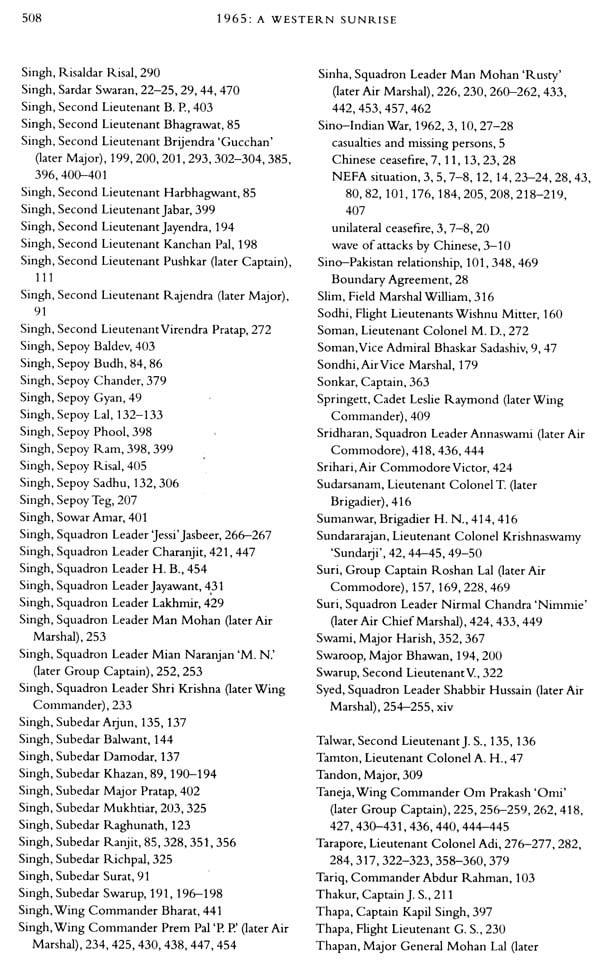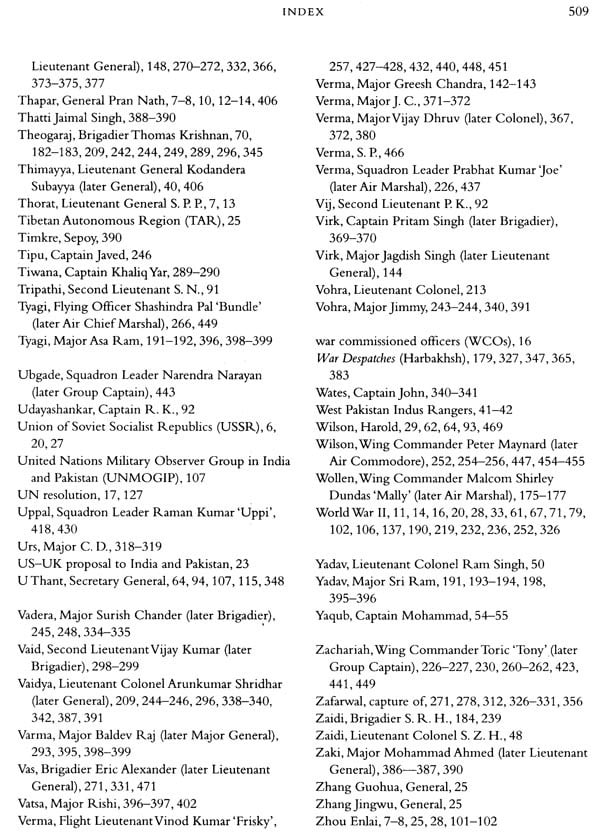
1965 A Western Sunrise- India's War With Pakistan
Book Specification
| Item Code: | NCZ048 |
| Author: | Shiv Kunal Verma |
| Publisher: | Aleph Book Company |
| Language: | English |
| Edition: | 2021 |
| ISBN: | 9789390652464 |
| Pages: | 526 (Throughout Color and B/w Illustrations With Maps) |
| Cover: | HARDCOVER |
| Other Details | 9.50 X 6.50 inches |
| Weight | 820 gm |
Book Description
However, India repulsed the attack and cut off the entry and exit points into the Kashmir Valley by capturing the Haji Pir Bulge. Operation Gibraltar fizzled out. Pakistan then launched Operation Grand Slam in September 1965 in Chhamb and Jaurian.
The resultant Indian counter-attack saw the focus shift to various other sectors-Lahore, Barki, Kasur (Khem Karan), Fazilka, Sialkot, and Barmer-on the international border. With the two air forces getting involved almost immediately, the armed skirmishes turned into full-scale war.
As they had in 1962, the junior officers and men of the Indian armed forces acquitted themselves admirably despite the on-the-fly reorganization of forces, lack of intelligence, obsolete equipment, and lackluster military leadership. What could have ended in victory instead culminated in a stalemate. Official Indian figures put the total number of casualties at 12,714, out of which 2,763 were killed, 8,444 wounded, and 1,507 went missing.
An estimated 2,000 casualties took place after the ceasefire, raising questions about the effectiveness of the UN as a global peacekeeping body. Neutral observers put Pakistani deaths at over 5,000. The conflict ended when the Tashkent Agreement was signed by Prime Minister Lal Bahadur Shastri and President Ayub Khan on 10 January 1966, agreeing to observe the ceasefire lines and withdraw armed personnel to positions that they had held before 5 August 1965.
Starting with the wounds of Partition and the disagreements over Kashmir, and based on the author’s research of the terrain, and numerous interviews with soldiers, officers, bureaucrats, and others who had a first-hand view of the conflict, 1965: A Western Sunrise is the definitive account of the 1965 war between India and Pakistan.
Born into an army family (his father was a captain with 2 Rajput in 1962), filmmaker and military historian Shiv Kunal Verma has worked with all three arms of the Indian armed forces over the last two-and-a-half decades. From flying extensively with the IAF while making Salt of the Earth and Aakash Yodha to the filming of the Naval Dimension and the Kargil War, Verma has had a ringside view of matters military. His film on the National Defense Academy-The Standard Bearers-is considered a classic. He is the author of the highly acclaimed Northeast Trilogy (that documented the entire region and its peoples) and The Long Road to Siachen: The Question Why.
Book's Contents and Sample Pages
